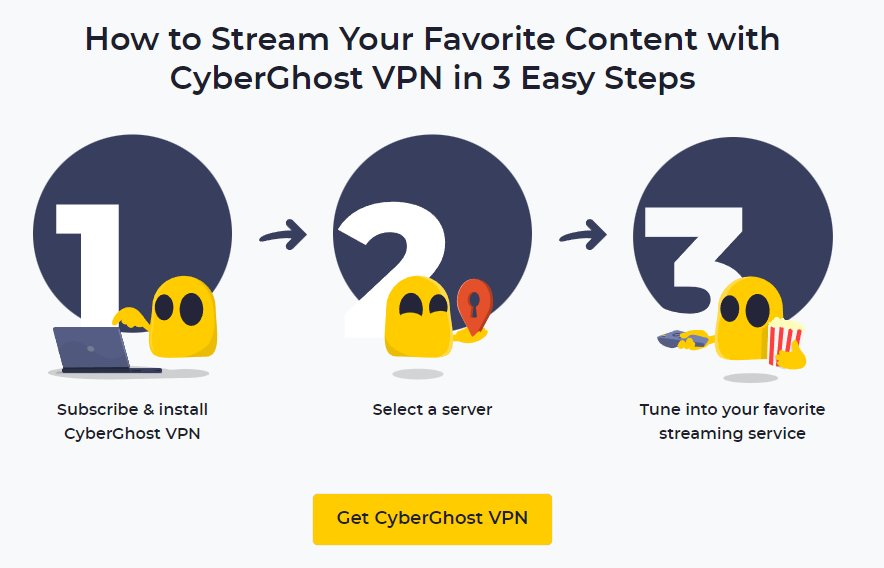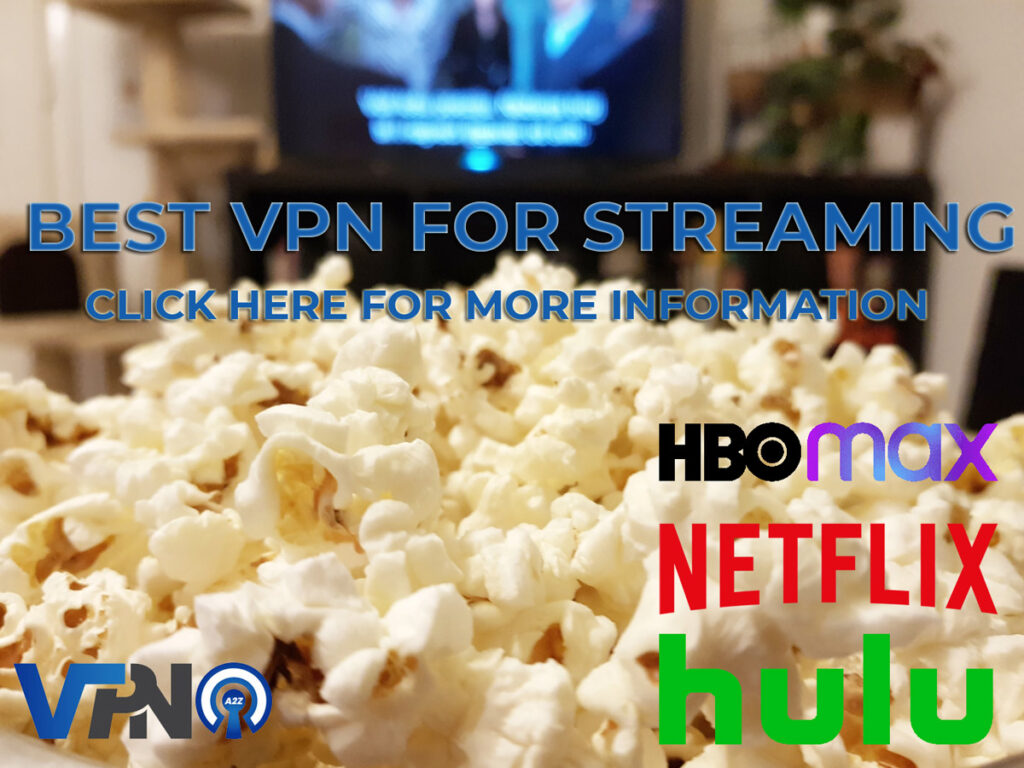If you use public Wi-Fi a lot, a VPN will protect you from malicious access points. These access points may switch SSIDs to trick you. One example of an evil access point has been discovered at the Black Hat conference and can trick 35,000 devices. VPNs can block these unauthorized access points. Here are a few more reasons why you need to use a VPN while using public Wi-Fi.

2. PIA - Ton of servers world wide, but especially great in United States.***

3. NordVPN - The bigger the better! A great choice everywhere!***

4. ExpressVPN - Trusted by millions in over 180 countries!***

5. SurfShark - Amazing deal right now!***

6. PrivadoVPN - Exclusive deal - Cheapest 1 year deal online - ONLY through this link***

*** Offers money-back guarantee. So try them risk free!
L2
If you’ve ever used public Wi-Fi, you know that it’s not always secure. Some Linksys routers, for example, use HTTP rather than HTTPS to transmit data. In the same way, a sniffer could get hold of your password in plain text, and if you reuse it, they could steal other login credentials. Another risk to public Wi-Fi is that some guest networks still use outdated Wired Equivalent Privacy, or WEP, which is easily circumvented. A more secure method of protecting your data is WPA, which is more secure than WEP. In fact, three Seattle-based hackers stole over $750,000 from local hotels using WEP.
Hacker attacks occur every 39 seconds. If you’re constantly using public Wi-Fi, you are likely to be a victim of one of these attacks. VPNs protect you from such attacks by hiding your web traffic and replacing your IP address. This makes it much harder for hackers to obtain your personal information or steal your identity. You’ll never know who’s observing your online activities. And with no need to enter your private information on public Wi-Fi, you’ll always have a protected connection.
When you’re using public Wi-Fi, be sure to use L2 VPN protection. If you’re on a public network, ask the staff what the network is called, and don’t log into sensitive accounts or logins. Otherwise, hackers could sniff your network and steal your personal details. In addition to protecting your personal data, L2 VPN protection on public Wi-Fi helps you avoid being tracked by hackers.
L2TP
L2TP is a standard protocol used to tunnel L2 traffic over the IP network. It can carry virtually any L2 or L3 data format over an IP network. Despite its widespread use, L2TP is relatively unknown outside of niche markets. Early versions of the protocol were limited to PPP, but that has since been removed. The most secure VPN protection available today is a combination of L2TP and IPSec.
L2TP VPN protection on public Wi-FI works on a local connection. Hence, you can use it while you are connected to the Internet. Moreover, the VPN connection cannot be established without an Internet connection. Public Wi-Fi is notoriously insecure, creating a tempting target for hackers. It is also recommended that you use a VPN while logging into sensitive accounts. If you are working on a computer, for instance, your credit card or bank account numbers, you can’t risk having your information exposed to online thieves.
L2TP is an evolution of PPTP. It relies on double-encapsulation for protection and uses the powerful AES encryption cipher. This protocol is often bundled with IPSec, which ensures data security. This makes L2TP VPN protection on public Wi-Fi so crucial. It can also protect you from phishing attempts, as well as preventing identity theft.
When you use a VPN on public WiFi, you are protected against other users. The VPN hides all your data in an encrypted tunnel, including DNS, and so on. In addition, sniffing of traffic would only reveal encrypted bidirectional packets between the VPN provider and the user. Because of this, your communications cannot be intercepted. Moreover, the encryption of your traffic makes it virtually impossible for other users to view your information.
L2TP+
L2TP+ VPN protection on public Wise is an essential security measure for anyone on the internet. While this protocol does not provide encryption by itself, it is often used in conjunction with IPSec encryption for enhanced security. It is also very simple to configure and supports native support on many devices. However, it is not as easy to bypass firewalls as other VPN protocols because of its two-step process.
To configure the VPN on your device, you must first enable it. This allows the VPN to connect to your device. If it cannot, check if your computer’s firewall is blocking traffic. If so, disable the software temporarily. Once connected, you should turn it back on. Similarly, if you encounter any problems, try changing servers. If the VPN client keeps experiencing connection problems, you can connect to a server that is near your location.
The downside of using L2TP+ VPN on public Wi-Fi is that it is not a good choice for privacy. Unlike L2TP+, OpenVPN does not store user data. This means that you can choose an open-source alternative, which will work well on both wireless and wired connections. Furthermore, openVPN supports multiple authentication methods. By using this software, you will never be in danger of being tracked online while using public Wi-Fi.
The main disadvantage of using public Wi-Fi is that it is more vulnerable to hacking. Statistics show that over a third of people log into their personal accounts using public Wi-Fi. In addition, 31% of these users use their credit cards or online banking. This makes public Wi-Fi an ideal target for cybercriminals. However, public Wi-Fi doesn’t always mean that it is secure. More than half of users of L2TP+ VPN on public Wi-Fi are unaware that their data is vulnerable to hacking.
L2TP+ +
Many people are concerned with the security of their personal and business information while using public Wi-Fi. The good news is that there are several steps you can take to protect your information. While these measures can be helpful, they also can be bypassed. One way to boost your security is to connect to a VPN Service Provider. Although this method will increase your security, it can be a lengthy process.
Before you log into a public Wi-Fi network, ask the staff to give you the network name. Whenever possible, make sure you use a strong password that you can’t easily guess. Remember, it’s easy for cybercriminals to sniff the network and steal your private information. This is one reason why password managers and two-factor authentication are vital tools for using public Wi-Fi networks.
Another way to secure your connection when using public Wi-Fi is by setting up a VPN service using L2TP++. This is an increasingly popular way to protect yourself. It is more secure than PPTP and is much more stable. Most VPN Service providers use this protocol to protect their clients, so you can be confident your data will be encrypted. However, PPTP doesn’t support encryption, which can cause slow performance when there isn’t enough bandwidth. This is why L2TP+ + VPN is an ideal option when using public Wi-Fi.

We recommend CyberGhost if you want better streaming (Netflix, Hulu, Amazon Prime, HBO Max, EPSN, Disney+, Eurosport and many others)
Although L2TP++ VPN protection on public Wi-Fi is a great way to protect yourself from phishing, hackers, and other cybercriminals, it’s also possible to be caught out. In fact, some people are so paranoid about these issues that they end up installing a VPN on their mobile devices, even if it is free. Fortunately, this protection is surprisingly easy to install and uses an existing connection.
L2TP +
If you are constantly using public Wi-Fi, you should make sure that you are protected by a VPN. This type of connection uses a protocol called Layer 2 Tunneling Protocol (L2TP/IPSec). This type of connection is unencrypted, and you should always connect to a VPN server to ensure that no one else can see your traffic. L2TP also masks your IP address, which may be useful if you want to protect your privacy.
With this method, you will be protected from any public Wi-Fi network. A VPN enables a secure encrypted connection, which greatly enhances privacy and security. This is especially important when using public Wi-Fi. Without a VPN, identity thieves and cybercriminals can spy on your online activity and steal your personal information. L2TP+VPN is also very easy to install and use, and NordVPN is one of the best options available.
VPN Price Comparison 2024
| Company | 1 Month | 6 Months | 1 Year | 2 Year | 3 Year | - |
|---|---|---|---|---|---|---|
| CyberGhost | $12,99 | $6,99 | - | $2,19 | - | Visit Website |
| NordVPN | $11,99 | - | $4,99 | $3,69 | - | Visit Website |
| PIA | $11,99 | - | $3,3 | 2024 Deal right now: $2,03 (Doesn't get cheaper!) | $2,03 | Visit Website |
| ExpressVPN | $12,95 | $9,99 | $8,32 | - | - | Visit Website |
| SurfShark | $12,95 | - | $3,99 | $2,49 | - | Visit Website |
| - | - | |||||
| PrivadoVPN | $10,99 | - | $2,50 | $3,99 | - | Visit Website |
In addition to protecting your data, a VPN prevents internet service providers from seeing what you are doing online. This is because your local IP address is typically associated with your web activity. Using a VPN funnels your internet traffic through a private server, whose IP address is not linked to yours. As a result, your online activity is kept confidential. But how does a VPN protect you?
The answer lies in the fact that 81% of Americans use public Wi-Fi hotspots regularly, and only 1% of them enable their VPNs. Interestingly, the percentage is higher in Germany and France. However, if you’re not sure how to use a VPN, consider enabling it for your public Wi-Fi. It’s worth noting that you should always use a VPN to protect yourself from a public Wi-Fi hotspot.




